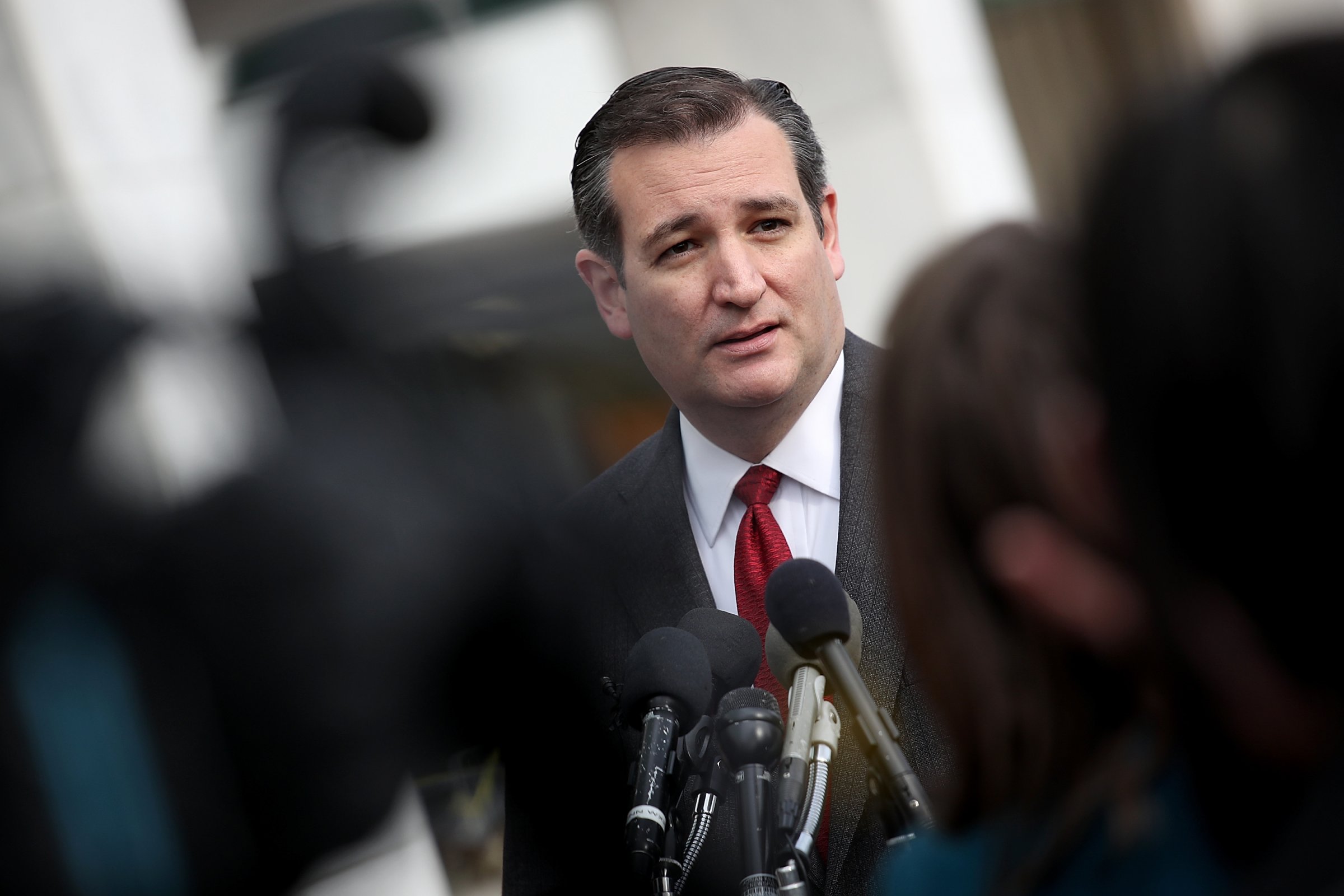
Ted Cruz—who claims that the Constitution is his “touchstone for every question”—has shamelessly pandered to libertarians for years. Cruz even campaigned that he’s the heir to the movement cultivated by former Republican presidential candidate and Texas Congressman Ron Paul.
At times, Cruz talked the talk so fluently that you could almost believe him. When Governor Chris Christie and Senator Marco Rubio attacked Cruz in a debate for voting to end the government’s illegal spying program, Cruz blasted them for presenting a false choice and accused them of “exploit[ing] the current crisis by calling on Americans to surrender our constitutional liberties as the only way to ensure our safety.”
That was before today, when it was Cruz’s turn to exploit a tragedy for political purposes. Proving once and for all that he is no friend of the liberty movement, Cruz responded to the deadly terrorist attacks in Belgium by calling for special surveillance and policing of Muslim-American neighborhoods in the United States.
What’s so galling is that Cruz, unlike Trump, no doubt knows better. He’s a brilliant lawyer who has argued nine cases before the Supreme Court. The self-proclaimed constitutional originalist knows that the First Amendment prohibits the government from favoring a religious group, so patrolling Muslim neighborhoods would be unconstitutional.
But the move is classic Cruz, and exactly why people find him so petrifying. Given a choice between pandering and holding fast to his principles, Cruz always chooses Door No. 1. The guy will say or do anything to become President.
Not that Cruz is alone in espousing policies that would directly violate the Constitution’s religious protection clause. We’ve all heard about Donald Trump’s call to shut down mosques, but Marco Rubio wanted to shut down any place Muslims peacefully gathered and Ben Carson had the bright idea of forcing all Americans to register in a religious database. This Republican primary season, candidates have been literally competing to substitute authoritarian talk and intolerance for actual policies that would make us safer.
Though the big-government approach to combating terror hasn’t made us safer, that hasn’t stopped Republican candidates from embracing it. And with Cruz now abandoning the libertarian principles he once strategically adopted, there is no one left in the race to challenge the misguided logic that has made the “war on terror” an ongoing expensive boondoggle, not to mention an assault on our nation’s productivity and civil liberties.
The Cold War official and nuclear strategist Paul Nitze famously warned that “one of the most dangerous forms of human error is forgetting what one is trying to achieve.”
We can fight terrorism and make Americans safe without sacrificing our freedom. But first, we need to understand what we’re fighting against.
We’ve spent trillions of dollars on the war on terror and we haven’t conclusively answered the basic question: What radicalizes men and women, and why do they turn to violence?
The forensic psychiatrist and CIA analyst Marc Sageman has argued that we will continue to fail at counter-radicalization as long as we keep throwing money at a problem we don’t fully understand. “The government provision of funds without necessary data is a recipe for low return on its financial investment,” Sageman writes. “Without an empirical foundation for research on the turn to political violence, we cannot progress.”
There’s an undeniable sense that headway fighting terror has stalled. So before we surrender more of our liberties to a government that will never stop demanding such, let’s take the time to figure out the difference between a productive measure and a cynical ploy to lend Americans a false sense of security.
More Must-Reads from TIME
- Why Trump’s Message Worked on Latino Men
- What Trump’s Win Could Mean for Housing
- The 100 Must-Read Books of 2024
- Sleep Doctors Share the 1 Tip That’s Changed Their Lives
- Column: Let’s Bring Back Romance
- What It’s Like to Have Long COVID As a Kid
- FX’s Say Nothing Is the Must-Watch Political Thriller of 2024
- Merle Bombardieri Is Helping People Make the Baby Decision
Contact us at letters@time.com